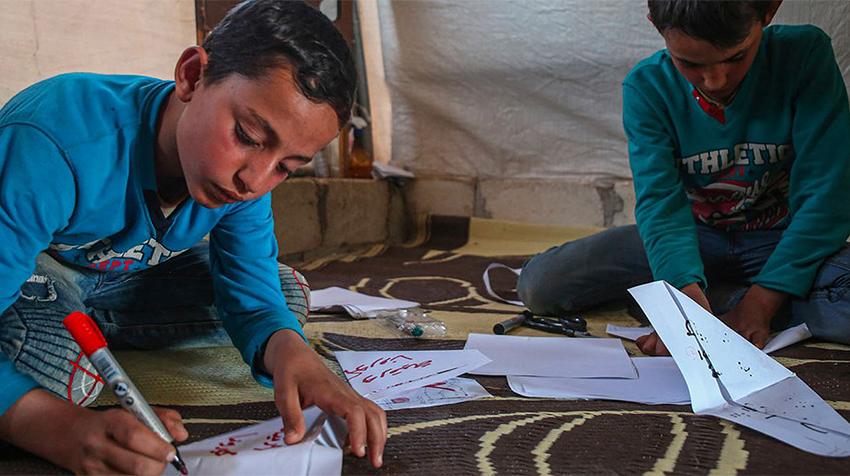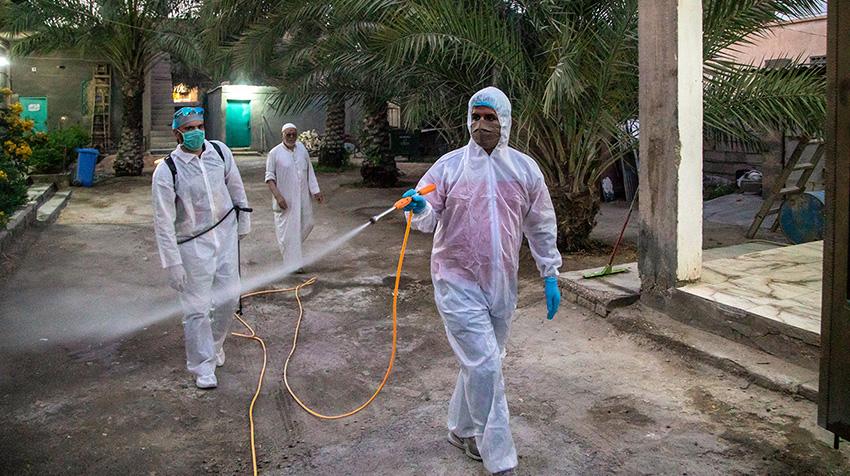
Enhance resilience to recover inclusively, says new report
The Great Disruption caused by the COVID-19 pandemic has turned the global economy upside down...

UN chief receives COVID-19 vaccine in New York
The UN Secretary-General, António Guterres, received his first dose of the COVID-19 vaccine on Thursday...

Make 2021 a year of possibility and hope, UN chief tells General Assembly
Following an “annus horribilis” of death, disaster and despair, 2021 must be a year of transformation, Secretary-General António Guterres told the UN’s 193 Member States on Thursday.

New statistical framework helps India consider nature’s contributions
The Indian Government demonstrated how a new statistical framework is helping to combat environmental degradation and promote sustainability...

Global economic recovery remains precarious, rebound of 4.7% to barely offset 2020 losses
The United Nations today warned that the devastating socio-economic impact of the COVID-19 pandemic will be felt for years to come...

Global Champions Announced for UN High-level Dialogue on Energy
Announcing the thirty Global Champions for the UN High-level Dialogue on Energy, a summit-level meeting to take place in September 2021, convened by the UN Secretary-General.

Shaping a new social contract and new global deal: UN DESA fireside chats
On 19th and 21st January, UN DESA experts will log on to two live interactive sessions where they will answer your questions about the future of sustainable development, inequalities and a green recovery from the pandemic. Register now to secure your spot by the fireside!

Growth of international migration slowed by 27%, or 2 million migrants, due to COVID-19, says UN
COVID-19 has disrupted all forms of human mobility through the closing of national borders and halting of travel worldwide.

Calling all world-changers: Share your SDG Good Practices!
UN DESA is calling on all changemakers, trailblazers and fearless activists to share their stories with the world. We are looking for good practices, success stories and lessons learned that could help others take action for the Sustainable Development Goals (SDGs).

UN DESA reveals the latest data on international migration
People will always move. Looking for a better life, we move to different cities, to other states or provinces, to different countries or across continents. Sometimes, we are forced to flee in the face of danger.

Indigenous peoples’ centuries long fight against pandemics
The COVID-19 pandemic has been particularly devastating for indigenous communities around the world.

State of the ocean will ‘ultimately determine the survival of our species’: UN Special Envoy
Will 2021 be our year?
From political views to classifying favourite holiday movies, our world is bitterly divided. But If there is one thing we all seem to agree on, it is that the year 2020 has been an annus horribilis. The COVID-19 pandemic unleashed a health and economic crisis unprecedented in scope and magnitude.

World Braille Day highlights importance of accessible information
The United Nations is commemorating World Braille Day on Monday, highlighting the importance of the universal touch-based communication system for the full realization of human rights for blind and partially sighted people.

Our top five news tell the story of a tumultuous year
2020 was a year like no other, bringing a deadly pandemic, climate disasters and political turmoil. Most of us cannot wait to see the end of it. Some might even be tempted to forget it altogether.
